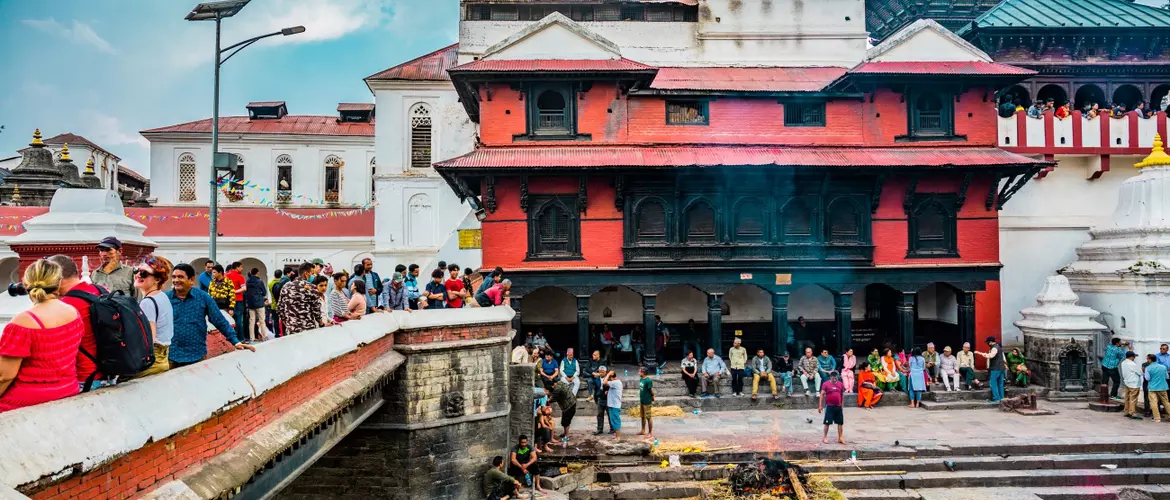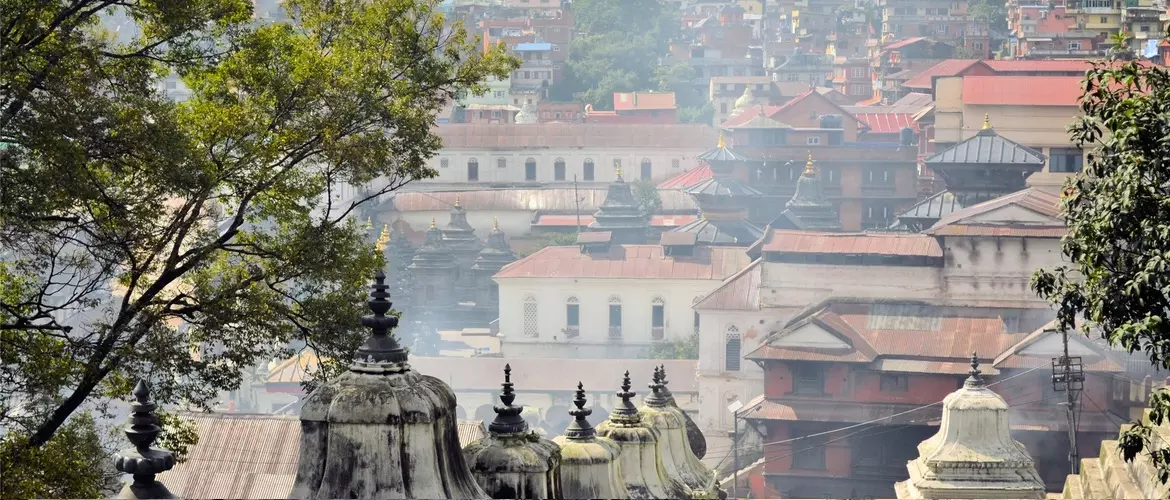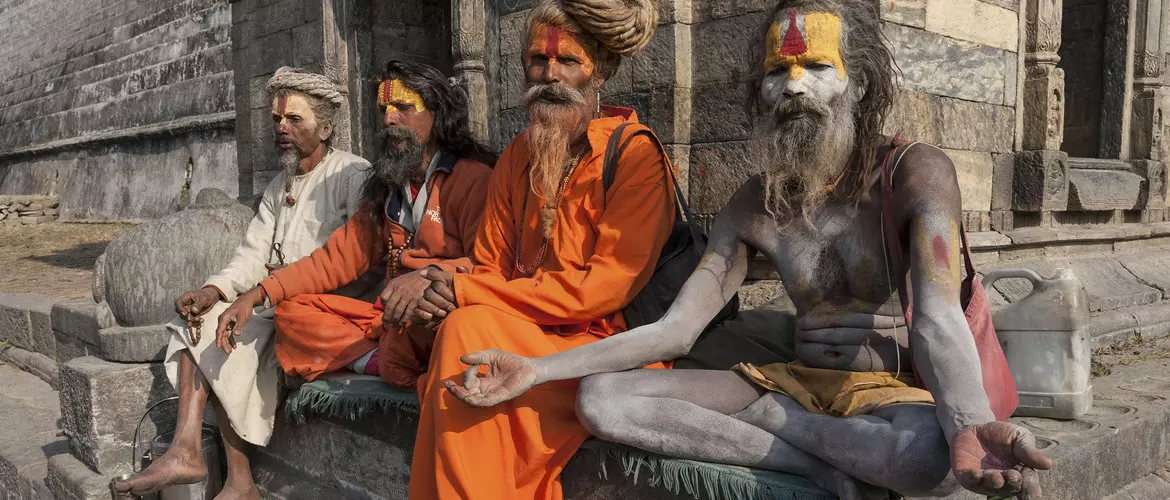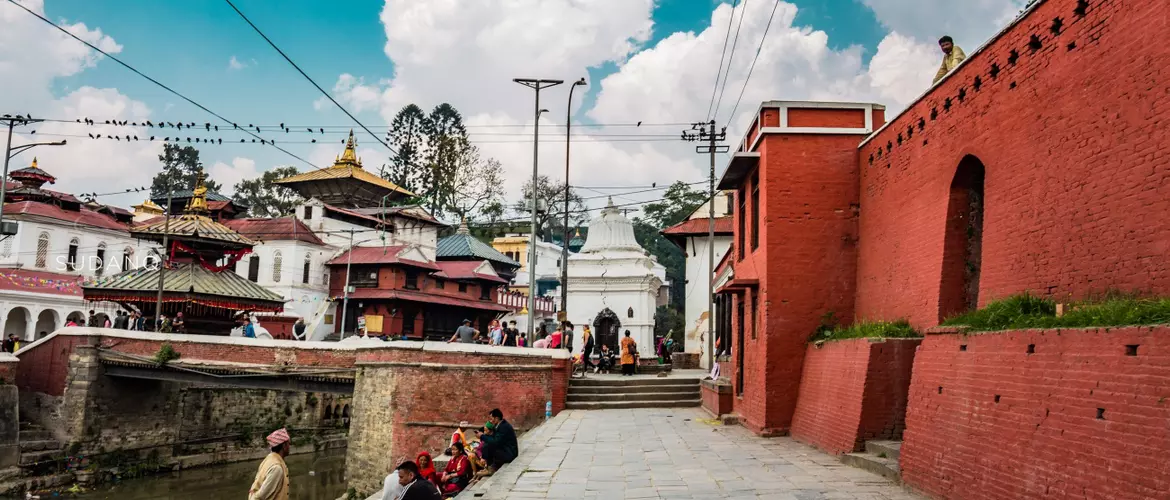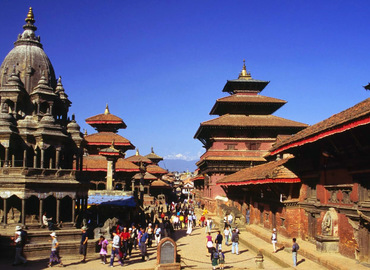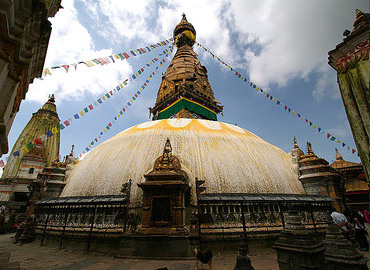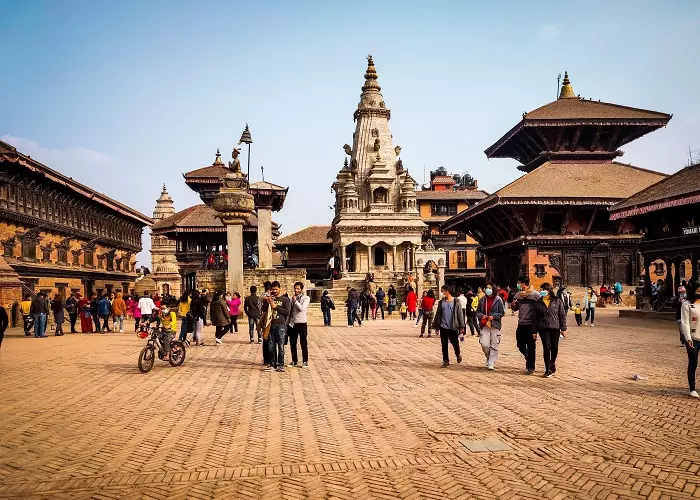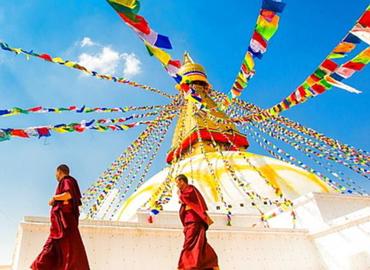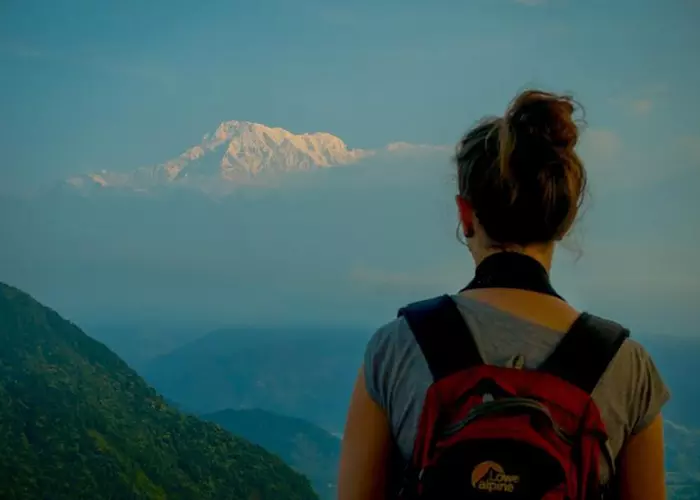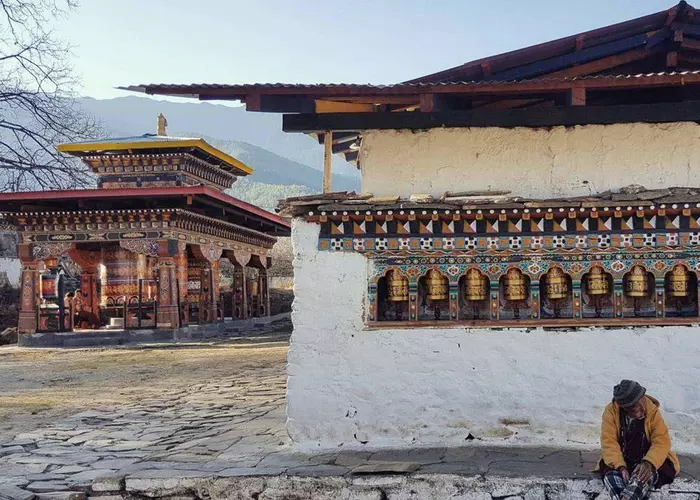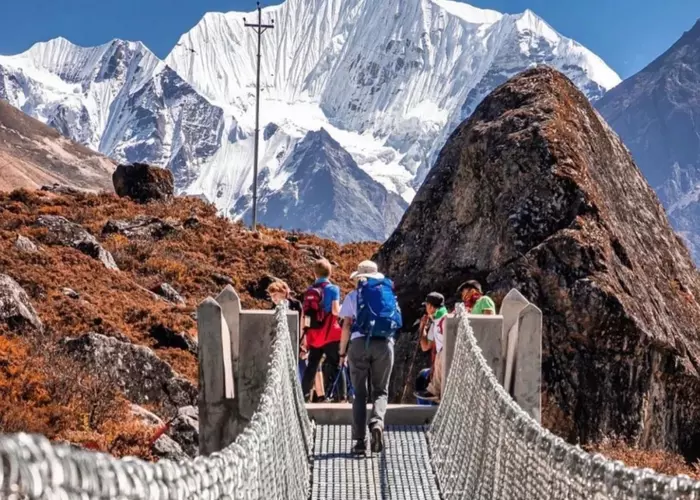On the UNESCO World Heritage Sites list since 1979, the Pashupatinath Temple is the largest Hindu temple worshipping the Hindu God Shiva in Nepal. This largest temple complex stretches on both banks of the Bagmati River and is located 3 kilometers northwest of Kathmandu, the capital of Nepal.
In Hinduism, this temple is one of the four most important religious sites in Asia. It's also one of the most important Hindu temples in Kathmandu; non-Hindus cannot enter the main hall. Hindus hold cremation here, which will be carried out 24 hours a day. During the cremation ceremony, tourists are not prohibited from taking pictures. Most tourists stand on the bridge or sit on the opposite bank to watch
History
It is said that the temple was first erected in the 5th century. After the ancient building was consumed by termites, Malla kings renovated it in the 15th century. With time going by, numerous temples were built around this two-storied temple and became a harmonious complex. The marvelous temple is one of the 275 Tamil Paadal Petra Sthalams, which means "Holy Abodes of Shiva".
Some elderly people who believe in Hinduism come here to spend the last days of their lives. To be cremated on the banks and travel with the water of the holy river - Bagmati River, they will release their karma and be reborn as a human regardless of how much misconduct they've done during their lives. In the Pashupatinath temple, you can feel a special atmosphere of death and meditate on life, death, and the soul.
What to See
The main structure, Pashupatinath Temple, is located in the middle of an open courtyard. It's a two-story pagoda of Nepalese style, which is built on a plinth and stands 23.6 meters above the ground. However, it is only open to Hindus and visitors can just tour the nearby temples.
However, there are many other old and important temples worth a visit. The temple of Vasuki is in the northeast corner of the courtyard. Vasuki is the King of the Nagas (serpent beings) and has a gem called Nagamani on his head. Devotees often worship Vasuki before entering the main sanctum.
Arya Ghat is an important place because it's the sole place to get lustral water for Pashupatinath Temple. While the most-used cremation site is Bhasmeshvar Ghat, Arya Ghat is the site to cremate members of the royal family.
The priests of Pashaputinath are called Bhattas. The daily ritual is performed by Bhattas and is a unique feature of this temple that only 4 Bhatta priests can touch the deity. There are 108 Bhandaris, who qualify as assistant priests but can't touch the deity.
Tips:
- The best time for your visit to Pashupatinath Temple is September to November.
- Visitors need to buy tickets at the entrance; the fee is 1,000 Nepalese Rupees.
- Taking pictures with Sadhus is not for free, and don't take pictures without permission under any circumstances.
- Don't wear hats, sunglasses, or anything with fur in the temple.
- No smoking in the halls.
Kathmandu - Bhaktapur - Nagarkot - Sarangkot - Pokhara - Kathmandu
Explore cultural & natural highlights of Kathmandu and Pokhara. Appreciate the greatest mountain view at Nagarkot.
Kathmandu - Paro - Thimphu - Paro - Lhasa
Enable you to explore the iconic sights of Nepal, Bhutan and Tibet in several days and fly over the majestic Himalayas.
Kathmandu - Syabrubesi - Langtang Trek - Kathmandu
Immerse yourself in the original Tamangs village culture and experience the all-around magnificent snow mountain landscape.
Email response within 0.5~24 hours.


